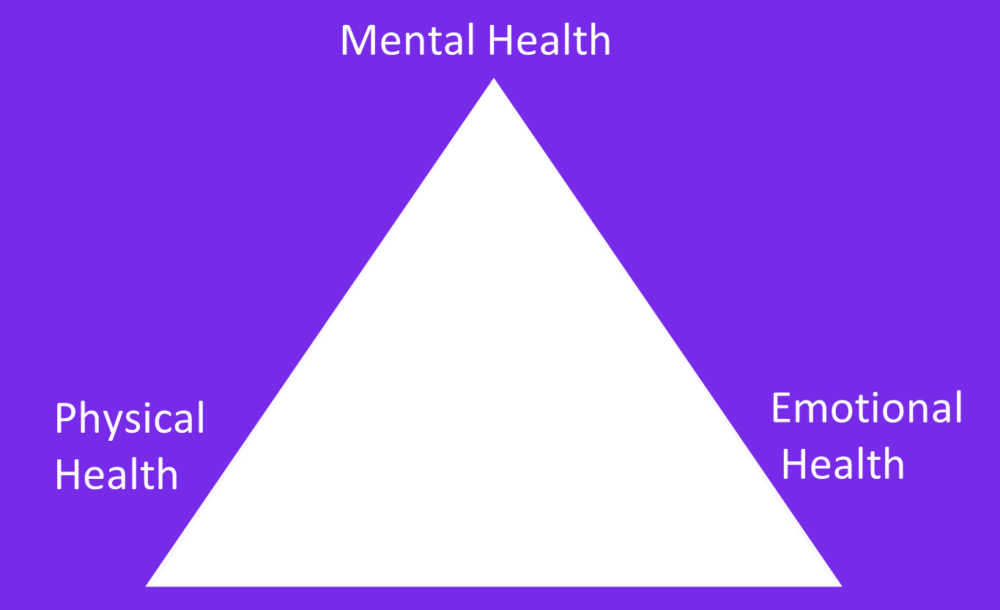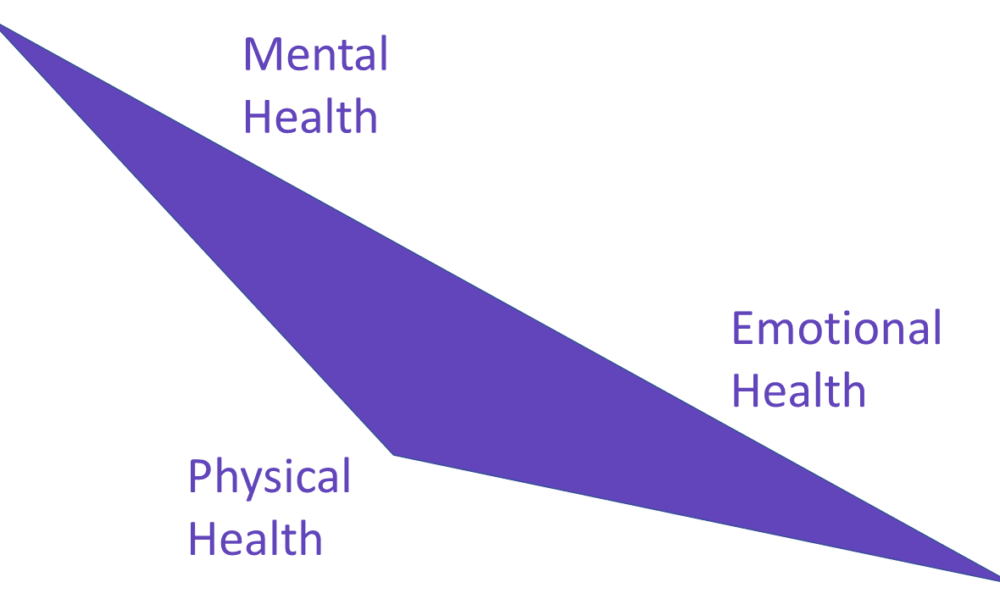Triangles are the preferred shape of architects due to their strength. The strongest triangles are of a certain shape – typically where the angles are all relatively even.
We can all become architects, using triangles to create balance in ourselves. However, just like in the physical world, the angles need to be balanced.
The highest level of triangle I use balances mental health, physical health and emotional health. If one angle was to be given too much growth, the structure starts to destabilize.
Let’s take our current education system. We learn all about the body, how it works in Biology, how to use it in PE. How much time in schools however is given to mental health? And in my experience, emotional health was something that was typically given a battering in the playground! For many of us, the triangle is not balanced.


And it is with that skewed structure, we head out into adulthood – unbalanced!
I love using triangles as a way of helping clients restore some balance.
The early focus will often be on one angle – such as emotional health. Fear, for example – one of our most primitive emotions, if unbalanced can cause a reduction in mental health and physical health. Bringing in the triangle approach however, can more rapidly help that fear reduce by also placing more focus on the other two elements.
Example 1: Eating disorder
Eating disorders are commonly around issues of control. Fear based on an inability to control things outside of us leads the mind to seek security and can turn to the first thing it ever learned to control – food intake. And so the energy flies to this angle in the triangle – the body (physical health) – and starts to increase the angle in an attempt to feel secure, to the detriment of mental and emotional health.
With someone with an eating disorder, we create a triangle that balances how they see their body image (mental), how they feel (emotional) and their energy levels (physical) and use this to make more healthy decisions around food intake.
A recent client started off with 95% happiness with their body shape, but unable to have the energy to leave the home, and experiencing huge amounts of guilt, anger and depression.
Working with the triangle, they were able to move to 80% happiness with their body shape, but back to enjoying a more active life and much happier in themselves. The triangle became more stable.
Example 2: Burn out
Burnout can be caused by a focus on career success. This is a focus on the emotional angle and the feeling of achievement being linked to self-worth (mental health).
Another client could relate to this. He had directed his focus to this emotional need, to the detriment of his relationship and health. It had led to him feeling very guilty about not spending enough time with his partner, he was not sleeping well, and ironically, did not have the time to enjoy the fruits of his labours.
Our work was to see how by reducing his focus on financial success, he could restore harmony in his relationship and improve his physical health.
Once balance is restored, the triangle approach can then help you grow. And this is the beauty of this shape in nature. A small triangle has the same angles as a bigger triangle – the bigger one just has more space inside it!
Therapy is often only seen as something you use when balance is off. Most top athletes, many top business men and well known actors use therapists to help them make their triangles bigger, to help them continue to be better at what they do.
The way we do this is by edging each side out a little. Small actions, small steps can quickly lead to the triangle getting disproportionately bigger, whilst still keeping balance. And the wonderful thing…..you can just keep pushing those boundaries out!

Having read this you may already get a feel for whether your triangle is balanced, and if not, where you could move your focus to return that balance.
Or are ready to grow that triangle?
And if you need some help, let’s chat.
Caroline Cavanagh is an anxiety specialist and hypnotherapist in Salisbury, Wiltshire. She is an author and public speaker and would love to talk to you if you would like to know more about her work.
Comment